Besame Mucho, one of the most popular songs of the 20th century, was written in 1940 by Mexican songwriter Consuelo Velázquez. The bolero is inspired by the Eusebius theme from the first movement of Robert Schumann’s Piano Concerto in A minor (opus 54).
The most famous jazz guitar version of the song was recorded in 1963 by Wes Montgomery for his album Boss Guitar.
In 1962, Grant Green recorded Besame Mucho for his Blue Note album The Latin Bit which also featured songs such as Brazil and My Little Suede Shoes.
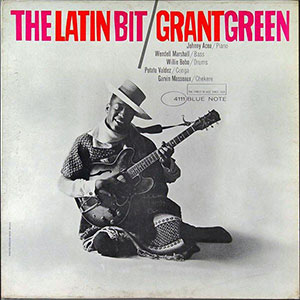
In this lesson, you will learn the melody of Besame Mucho as played by Grant Green and a solo inspired by Grant Green’s recording on The Latin Bit.
Recommended Listening:
- Grant Green – The Latin Bit (1962)
- Wes Montgomery – Boss Guitar (1963)
- The Beatles – Anthology 1 (1995)
- Ulf Wakenius – Taste of Honey (2020)
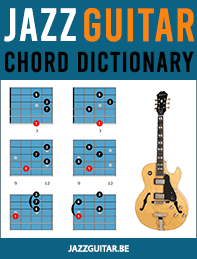
THE JAZZ GUITAR CHORD DICTIONARY (FREE eBOOK)
Download now and learn 244 chord shapes!
Besame Mucho – Video
Besame Mucho – Melody
The melody of Besame Mucho uses the A Aeolian mode (the 6th of the guitar modes), mixed with the A harmonic minor scale (on the E dominant chords) and some chromaticism.
Backing Track (produced by Stefan Elsner)
Listen & Play-Along
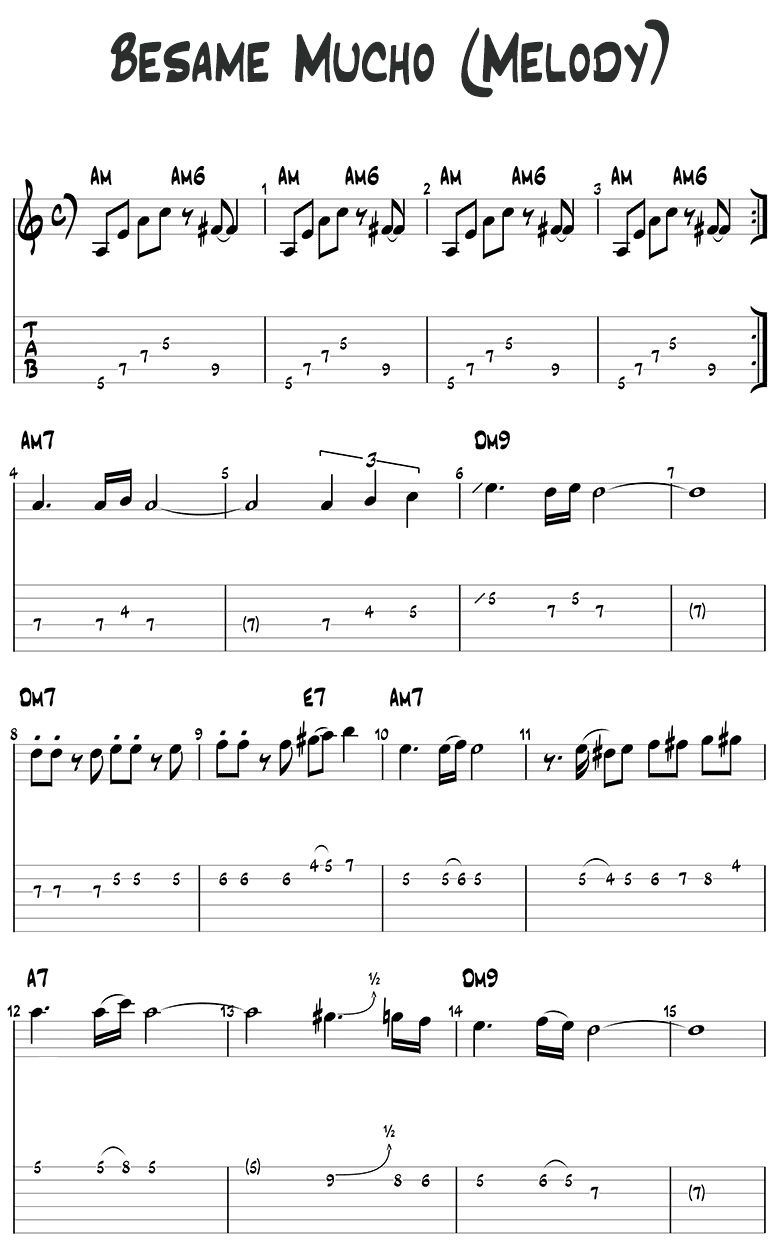
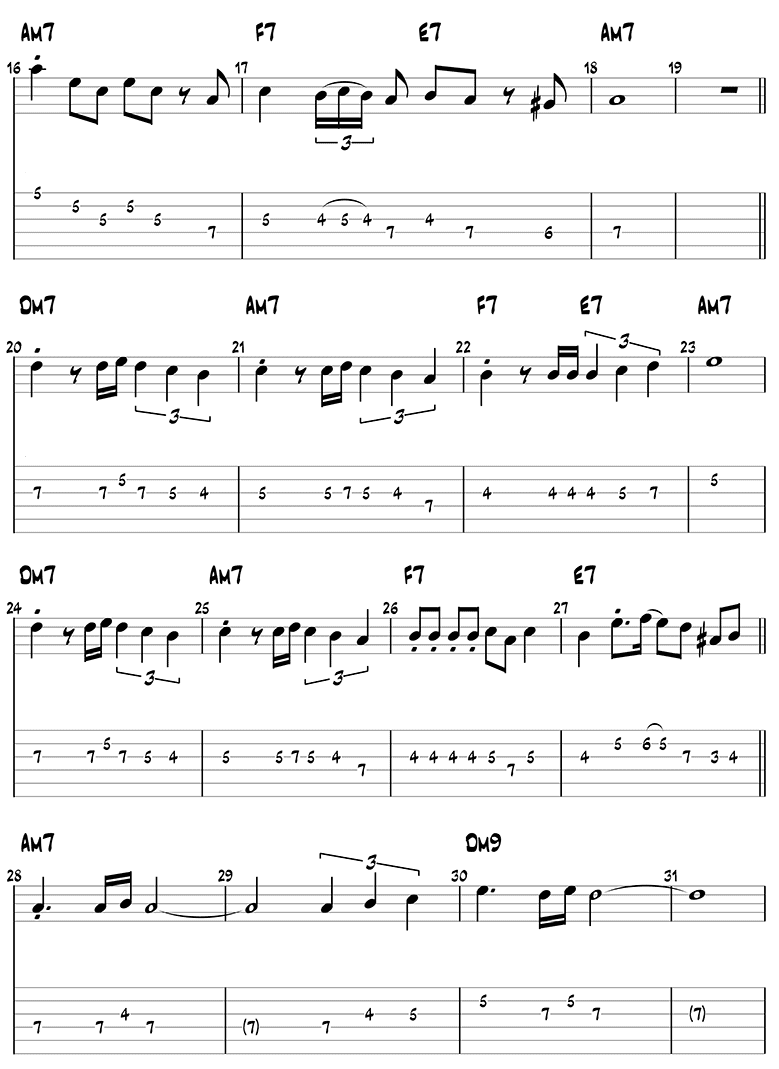
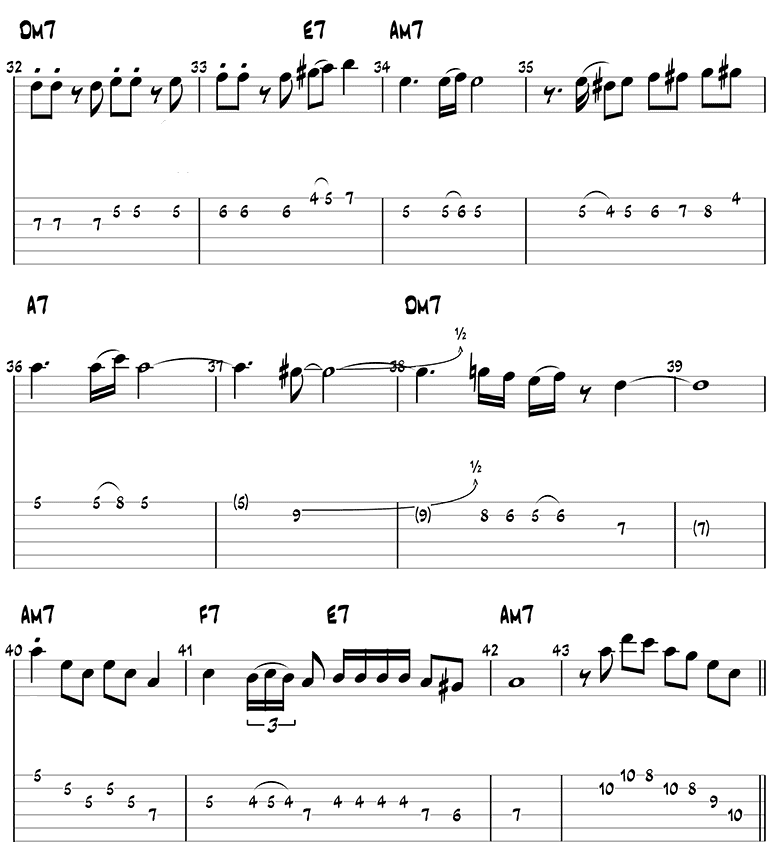
Besame Mucho – Guitar Solo
This solo over Besame Mucho mixes Grant Green licks with scales and arpeggios.
Grant Green comes from a rhythm and blues background and uses a lot of blues devices in his solos, such as the blues scales.
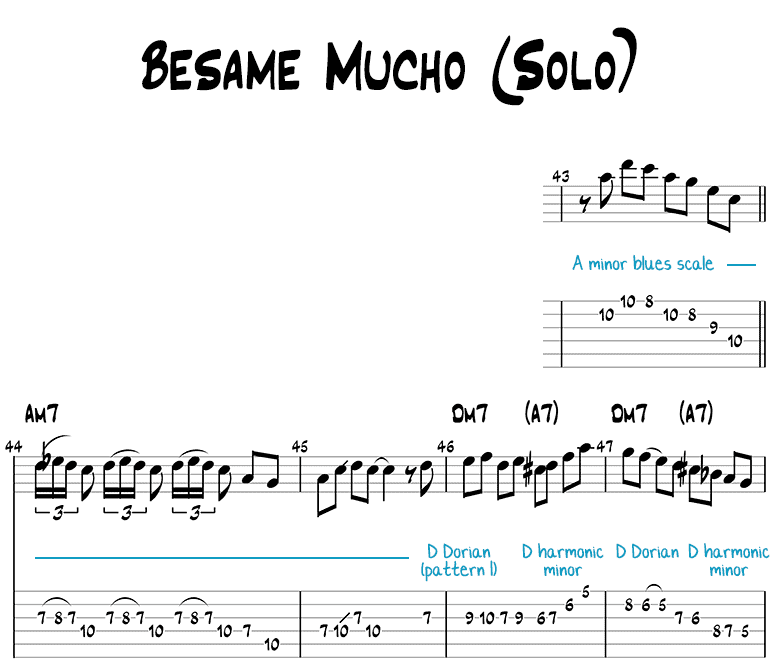
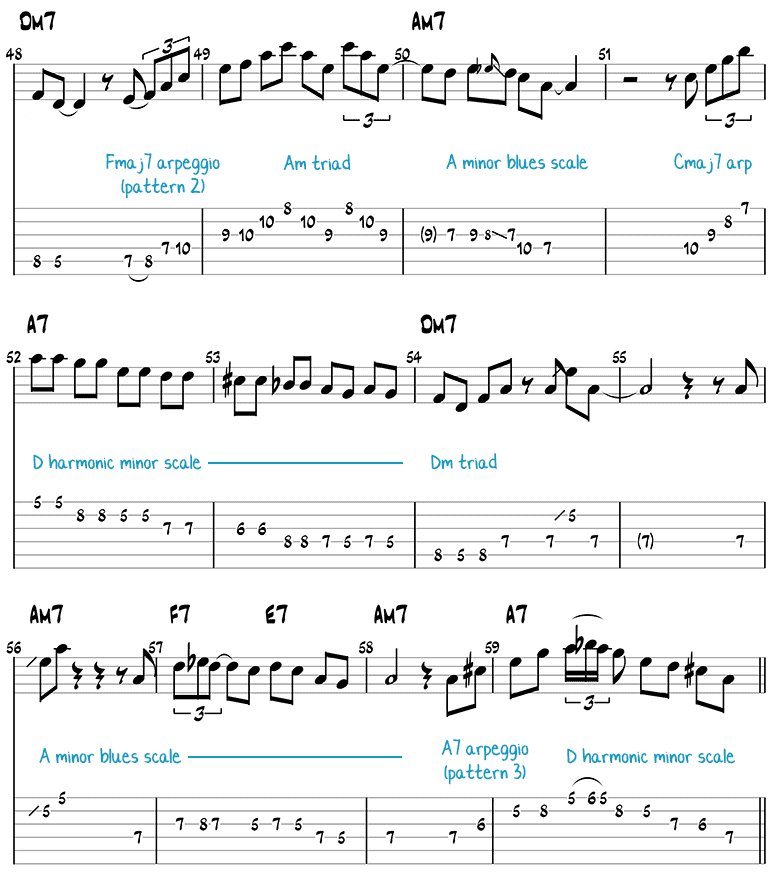
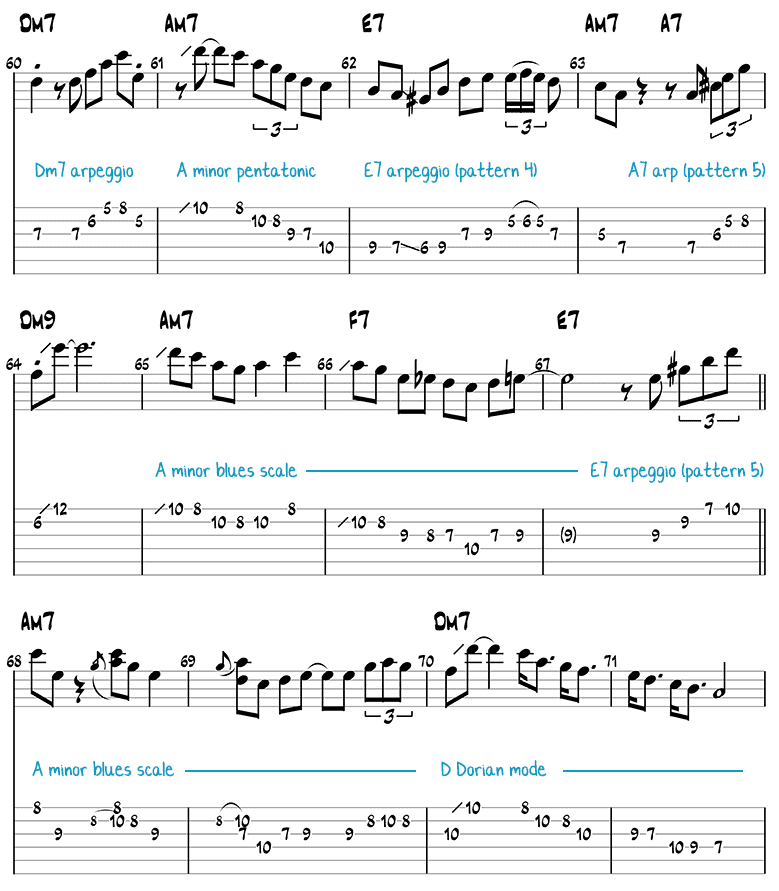
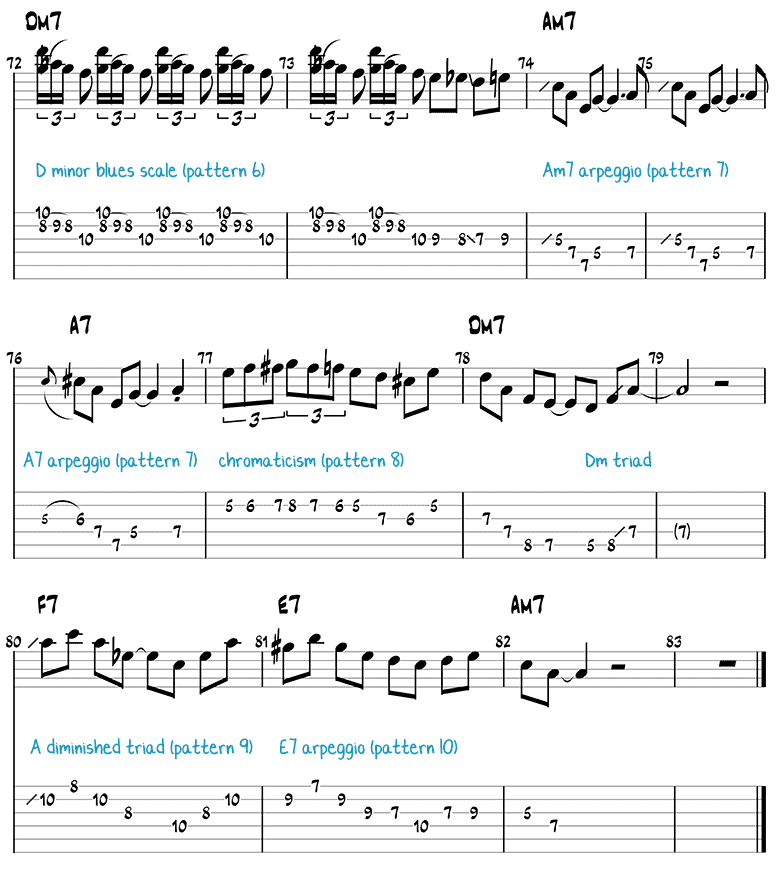
Jazz Guitar Patterns
Here are 10 jazz guitar patterns that are lifted out of the solo and that you can use as building blocks for your own improvised solos.
Jazz Guitar Pattern 1
This first pattern over Dm7 switches between Dm7 and A7.
Playing the dominant (A7) over a minor chord creates a sense of movement.
In this pattern, I play the D harmonic minor scale over A7.
| D harmonic minor scale | D | E | F | G | A | Bb | C# |
|---|---|---|---|---|---|---|---|
| Played over A7 | 11 | 5 | b13 | b7 | 1 | b9 | 3 |
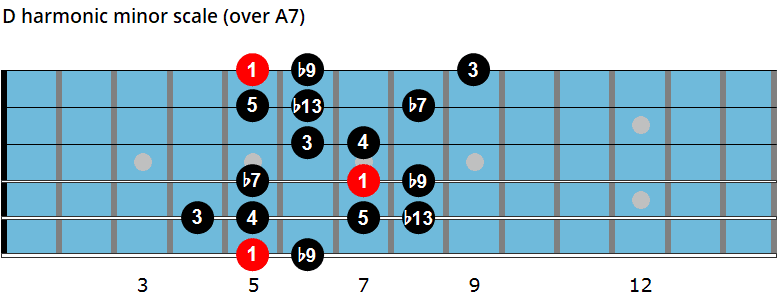
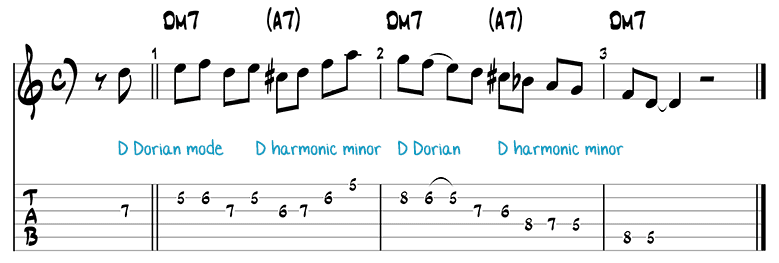
Jazz Guitar Pattern 2
Here, I play an Fmaj7 arpeggio over Dm7.
This creates what is called a 3 to 9 arpeggio.
| Fmaj7 arpeggio | F | A | C | E |
|---|---|---|---|---|
| Played over Dm7 | b3 | 5 | b7 | 9 |
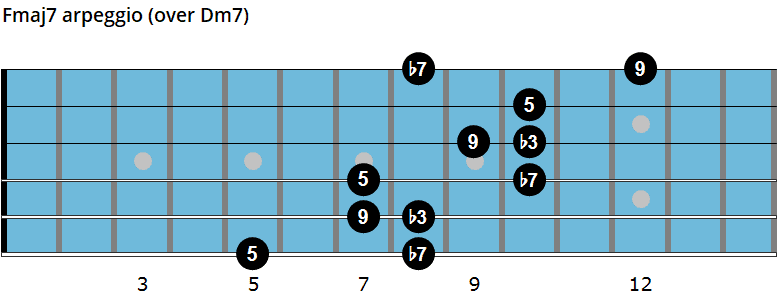

This pattern can also be reversed, like this:

And here are two other positions:


Jazz Guitar Pattern 3
This typical Grant Green lick uses the D harmonic minor scale over A7.
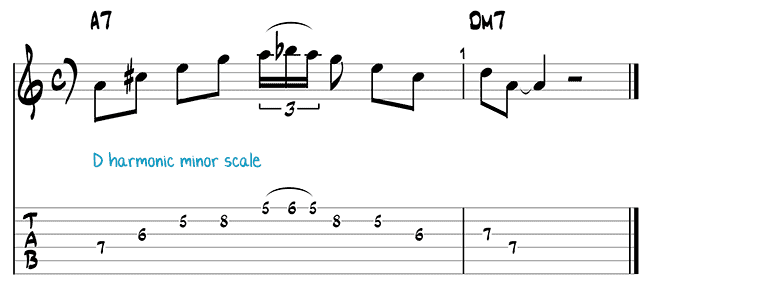
Jazz Guitar Pattern 4
Pattern 4 starts with an E7 arpeggio (with the 4 as a passing note) and moves on to the A harmonic minor scale before resolving to Am7.

Jazz Guitar Pattern 5
This pattern uses a simple A7 arpeggio with a typical bebop rhythm.
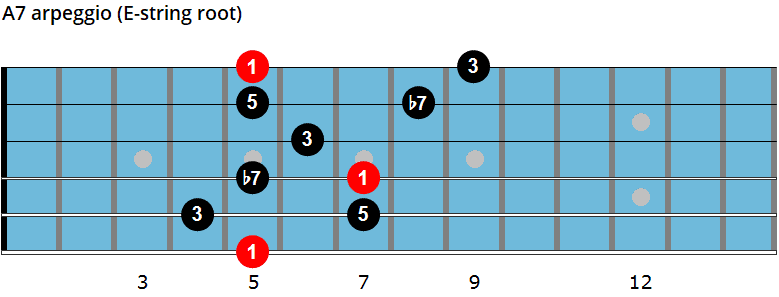
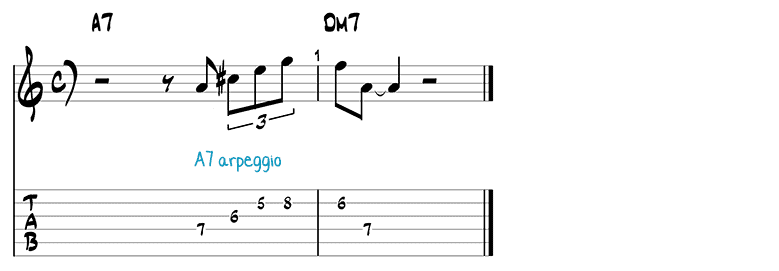
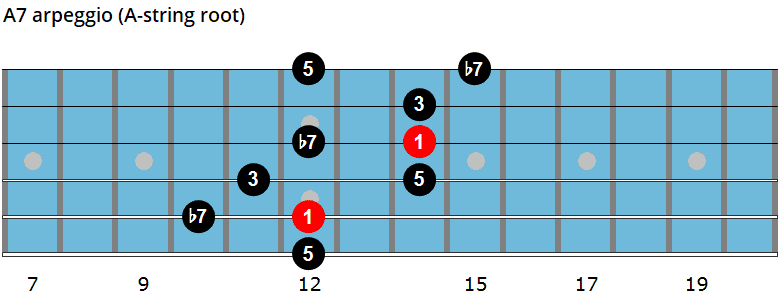
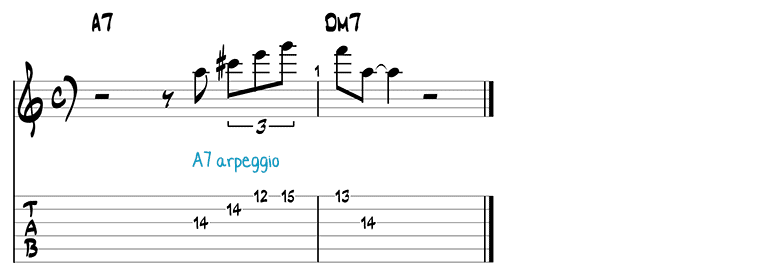
Jazz Guitar Pattern 6
Pattern 6 uses a typical minor blues scale double-stop technique.
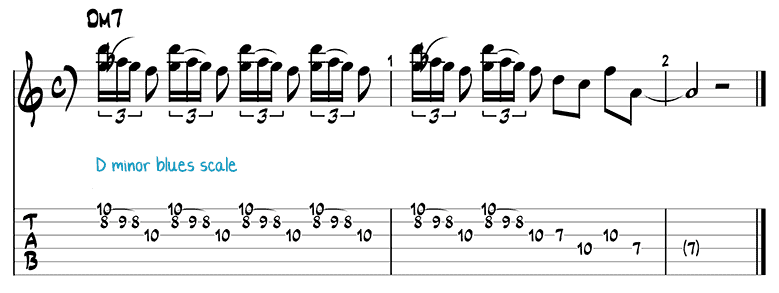
Jazz Guitar Pattern 7
This pattern uses an Am7 arpeggio pattern that targets the b7.

This pattern can also be used over A7 by changing the b3 (c) of the minor chord to a 3 (C#).

Jazz Guitar Pattern 8
Pattern 8 uses a chromatic line inside an A7 arpeggio.
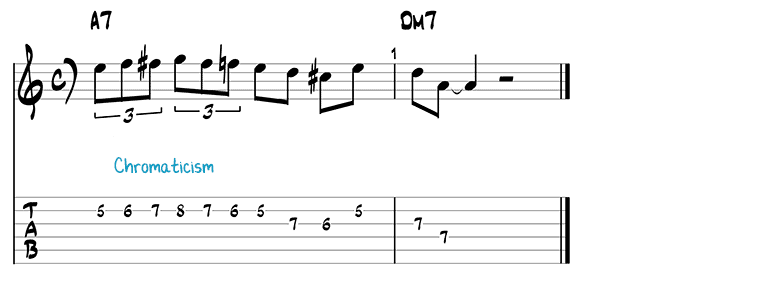
Jazz Guitar Pattern 9
This pattern uses an F7 chord shape and targets the b7 (play as single notes, don’t fret the entire chord).
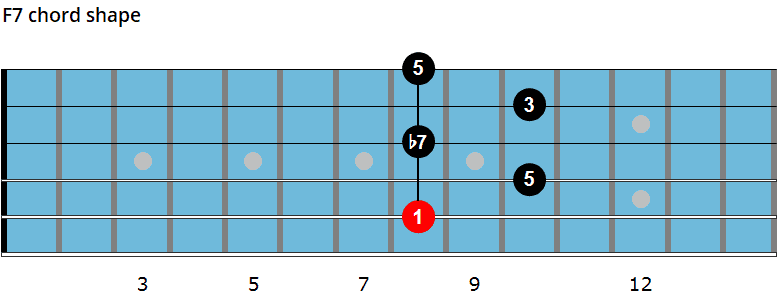

Jazz Guitar Pattern 10
This last pattern uses a simple E7 arpeggio that resolves to Am7.
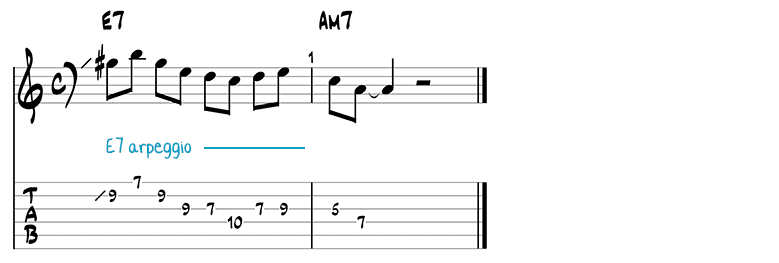
Check out our course Jazz Guitar Patterns & Phrases Volume 1 and learn 87 classic jazz guitar patterns that are ideal building blocks for your jazz guitar solos.
Related Lesson – Besame Mucho Chords

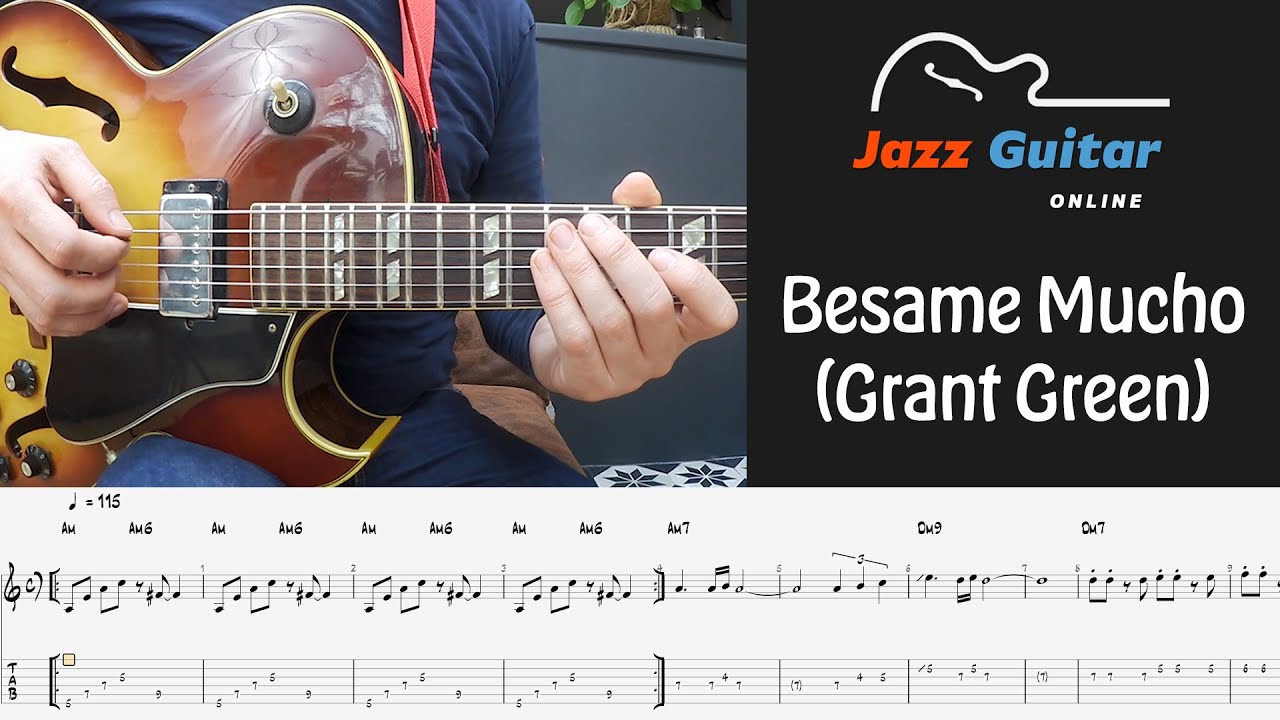



This lesson has been so much fun. Thanks!
Thank you for your excellent lessons it brought me endless pleasure in playing . It challenges me to continue studying.
Gerard Hoogland
You’ve accrued enough good karma to carry on swinging on a star bringing moonbeams home in a jar. Grateful to see an altruistic soul putting his hard earned musical knowledge and untold hours in the shed ‘out there’ in the most lucid, practical way. Parsimoniously, sharing in an accessible manner our ‘Raison d’être’… the Art of Simplicity’ is not simple. Thank you for keeping the spark of Jazz alive for a generation of sonically deprived, desensitized aspirants ! In truth, the beauty in jazz is subtle (and complex if you dive deep); amazingly, I believe your hard work has opened the door that the reluctant found so intimidating; plus, the bonus:
You won’t take all that knowledge with you to the other side. As for me I know more than I could teach, yet I can’t give it away ! Kudos, Cheers, A Jolly Good Show -‘Go For It!’ my son. One Stoked Bloke 🎵
Thanks so much for all your efforts. I really appreciate your work.
Great value thanks theodore
Thankyou Dirk for this superb lesson including incredible detail and playing skill.
I really appreciate it my friend.
Gracias Máster por su inmenso aporte y generosidad… bendiciones!
I’d like to thank you a lot for this lesson. It’s a cleverly re-writing of grant Green’s solo and helps a lot to understand the master’s solo and develop different arpeggio shapes on the fretboard. This lesson and Blue Bossa one are a splendid starting point to study arpeggios!
Excelente estudio de la enorme versión de Grant Green. Muy agradecido a JAZZ GUITAR por su profesionalidad y generosidad !!
Hi, you do great job, thanks for that!
just beautiful – DIRK ,thanks a lot.
Thanks a lot for your great job, Dirk. Very important and interesting material for guitar players.
Muito bonito e muito bom para estudos.
Muito obrigado.
Thanks for this great information
God bless you man, you are the unknown soldier, love your work!
What a fantastic post – so much effort for us poor guitar junkies!
Thanks so much for your wonderful work on this and past lessons. It is greatly appreciated.
Great! Thank You! We love you, Teacher!
God bless you! ! !
Brillante interpretación de un gran tema. Gracias maestro por esta gran lección.
Thankyou for this Dirk. As Danilo said I too am a massive fan of Grant Green. Just love his playing style. So thanks a ton for this song Dirk.
Awesome lesson! Grant Green is one of my favorites guitar players. Thank you for sharing your knowledge with us!